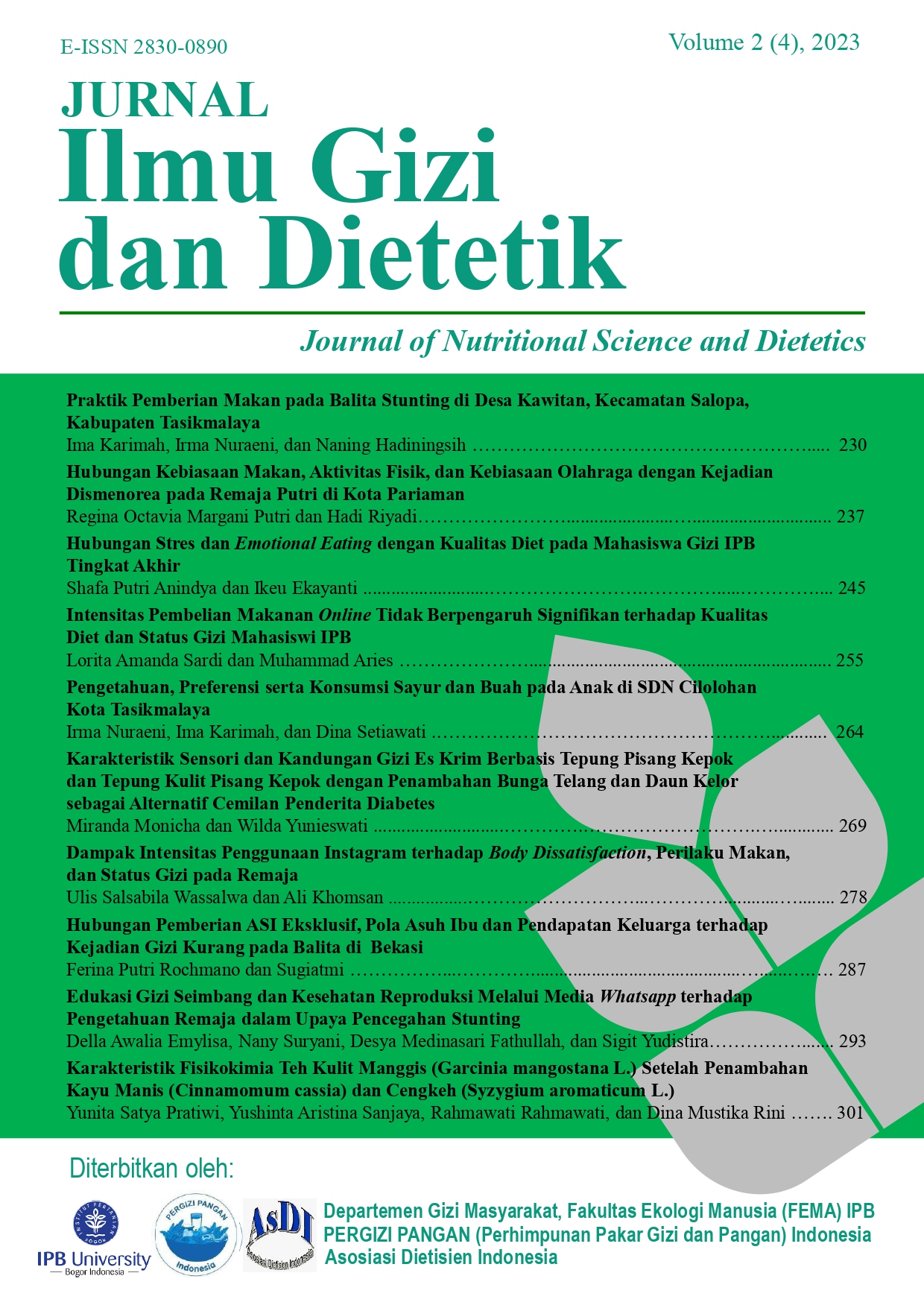Hubungan Pemberian ASI Eksklusif, Pola Asuh Ibu dan Pendapatan Keluarga terhadap Kejadian Gizi Kurang pada Balita di Bekasi The Relationship of Exclusive Breastfeeding, Mother's Parenting Patterns and Family Income on Undernutrition in Toddlers at Puskesmas Bahagia Bekasi
Abstract
Malnutrition is still one of the health problems in developing countries, including Indonesia. According to WHO standards, the nutritional situation in Indonesia has exceeded the normal threshold, namely, undernutrition >10%. Meanwhile, the prevalence of nutritional status (BB/U) in children under five in West Java according to Riskesdas 2018 is 10.6%. Undernutrition is caused by two different factors, namely direct causal factors and indirect causal factors. Congenital diseases and diet are direct causal factors, while parenting, family income, family food security, access to health services, and environmental health are indirect causal factors. Knowing the relationship between exclusive breastfeeding, maternal parenting and family income on the incidence of malnutrition in toddlers aged 6-59 months at Puskesmas Bahagia Bekasi. This research is an observational study with a cross-sectional approach, the number of research subjects was 106 respondents selected by probability sampling. The research was conducted in July for 4 days in the working area of the Bahagia Bekasi Puskesas. The instruments used were anthropometry (measurement of height and weight of toddlers), questionnaires and interviews with parents/caregivers of toddlers. Data analysis using chi-square test with IBM SPSS Statistics 26 application. The results of the study based on gender characteristics were mostly male as many as 60 respondents and the age of toddlers in this study was mostly aged 12-24 toddlers with 29 respondents. The results of this study showed a significant relationship (p<0.05) between exclusive breastfeeding (p=0.034), maternal parenting (0.011) and family income (p=0.00) at Puskesmas Bahagia Bekasi. There is a significant relationship between exclusive breastfeeding, maternal parenting and family income.

